Venezuela Turns Pensioners into Militia Amid Rising US Tensions
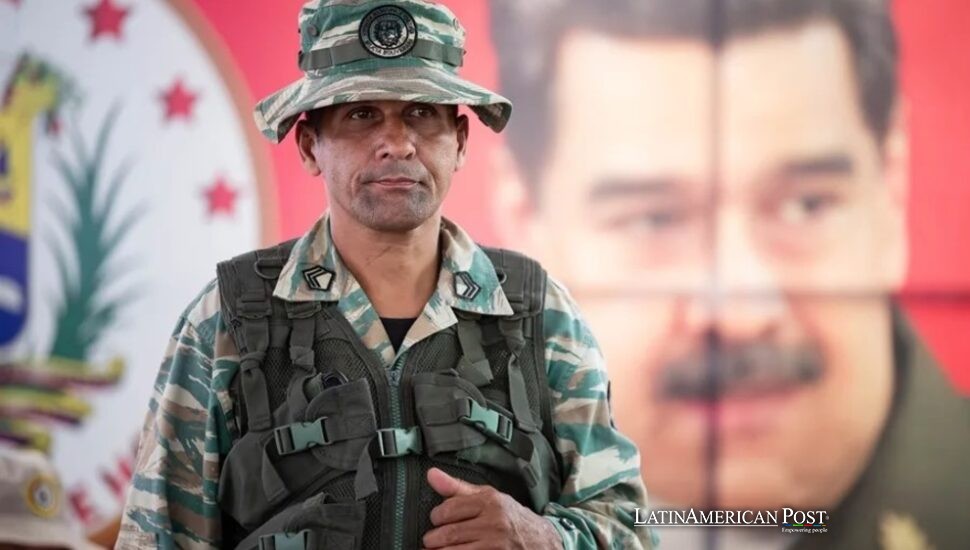
In Venezuela, the government’s strategy for survival is increasingly resting on a curious paradox: arming its elderly. While Washington insists its Caribbean naval deployment is about drugs, Caracas frames it as invasion. Somewhere in between, civilians are being told to prepare for battle.
Militias as a shield, not a sword
When Edith Perales enlisted in the Bolivarian Militia at the age of 52, it was a symbolic act of loyalty to Hugo Chávez’s vision. Today, at 68, he and thousands of pensioners are dusting off uniforms to face what the government calls a looming U.S. threat. “We must defend the fatherland,” he told the BBC, echoing Nicolás Maduro’s speeches after American naval strikes sank three Venezuelan boats and killed at least 17.
The militia, founded in 2009, was never meant to be Venezuela’s frontline army. It was designed as a civilian adjunct to the Armed Forces, parading at rallies, marching at political events, and reinforcing the imagery of a “people in arms.” But Maduro’s call to bring “the barracks to the people” has transformed these grey-haired volunteers into something else: a deterrent through vulnerability.
Analyst Benigno Alarcón from Andrés Bello Catholic University argues that the militias are meant less as fighters and more as human shields. “It doesn’t matter if they are unarmed,” he says. “What matters is the human cost their presence represents.” In other words, Caracas calculates that the image of elderly Venezuelans in uniform being caught in crossfire would give Washington pause.
It is a brutal kind of political theater, but one consistent with Maduro’s survival playbook: when cornered, raise the stakes until the other side hesitates.
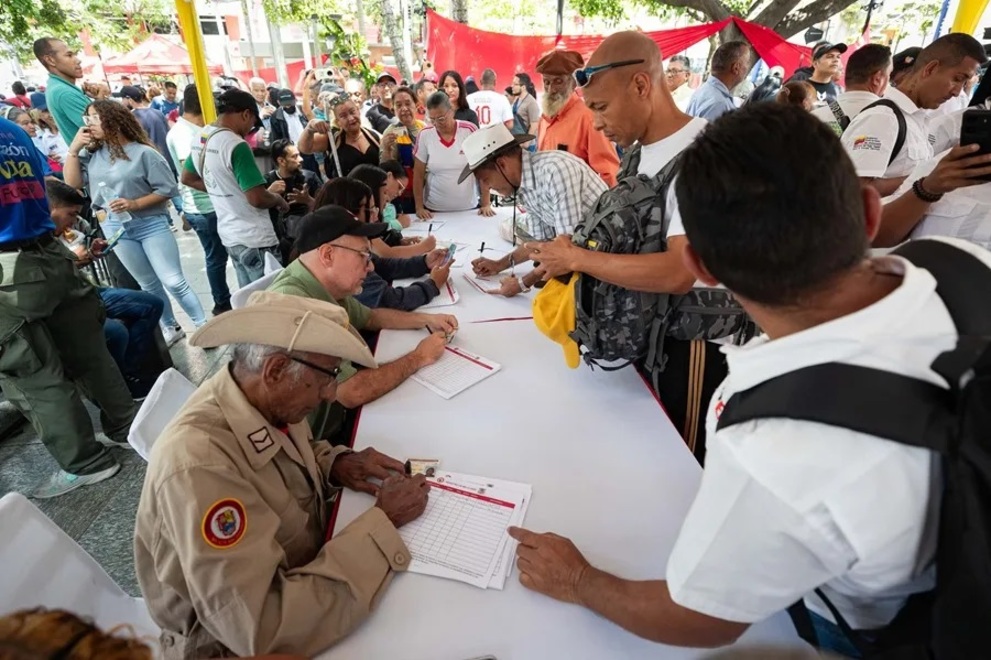
EFE/ Ronald Pena R
Enthusiasm and fear in the barrios
The training sessions are as much spectacle as drill. In Caracas’ Petare district, soldiers set up Russian-made rifles, posters, and even armored vehicles. Loudspeakers instruct the crowd: “Familiarize yourselves with the weapons; we aim at the target and make a hit.”
What follows borders on surreal. Francisco Ojeda, 69, throws himself onto the tarmac clutching an AK-103. “Even the cats will come out here to defend the fatherland!” he boasts to BBC News Mundo. Nearby, 67-year-old Glady Rodríguez insists that “no U.S. government will invade us,” while homemaker Yarelis Jaimes, 38, admits to nerves. “This is the first time I hold such a weapon,” she confesses, “but I know I can do it.”
The enthusiasm is real, but so is the fear. Many militia members had never handled a gun before. Most are public-sector workers nudged into volunteering or elderly Chavistas unwilling to abandon the cause. For them, the rifle is less a tool of combat than a prop of resistance.
Yet the spectacle is uneven. Just meters away from Ojeda’s prone position, life in Petare continues uninterrupted. Street vendors hawk goods, shoppers ignore the commotion, and children play. Outside Maduro’s strongholds, few Venezuelans appear convinced that invasion is imminent. For a country battered by hyperinflation, blackouts, and migration, the urgent enemy is daily survival, not a distant fleet.
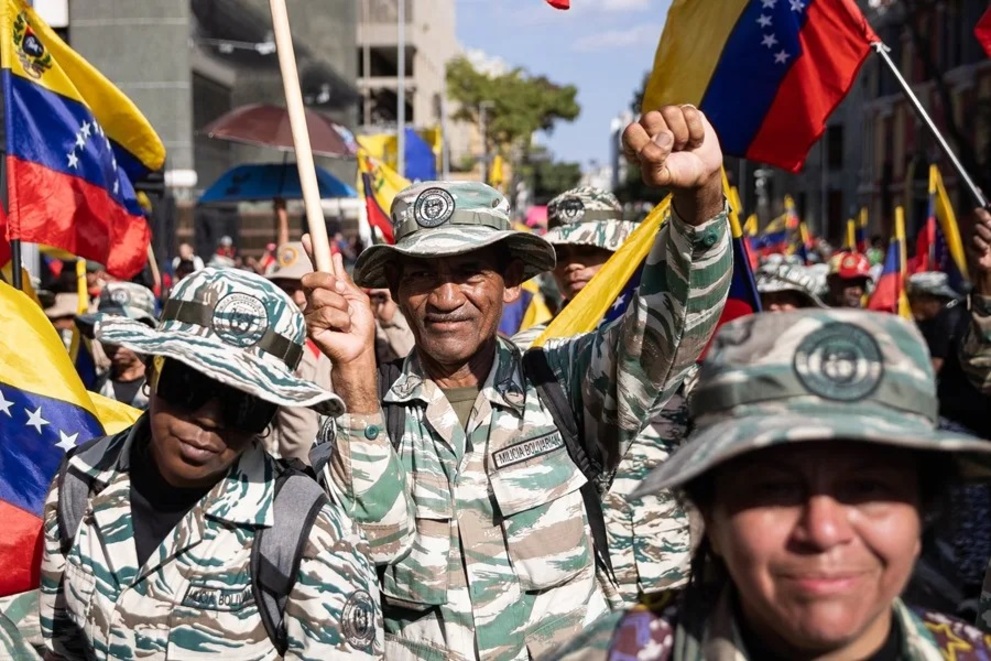
EFE/ Ronald Pena R
A crisis of legitimacy
The current escalation cannot be understood without the politics that underpin it. The U.S. has refused to recognize Maduro’s July 2024 re-election, citing evidence compiled by opposition groups and independent observers that rival candidate Edmundo González won in a landslide. For Washington, Maduro is not a president but a usurper.
Donald Trump, back in the White House, has doubled down. His administration labeled the Venezuelan gang Tren de Aragua a terrorist organization, justified deportations of Venezuelan migrants on that basis, and authorized naval strikes in the Caribbean under a counter-narcotics pretext. A $50 million bounty now hangs over Maduro’s head, while his government, paradoxically, cooperates with U.S. deportations.
Maduro’s response has been dual. Internationally, he sent a letter to Trump seeking dialogue—a gesture rebuffed by the White House. Domestically, his rhetoric has hardened: calling the strikes an undeclared war, ordering militias to mobilize, and framing Venezuela as David against Goliath. The contradiction is deliberate. To his supporters, he is both statesman and warrior; to his critics, both supplicant and strongman.
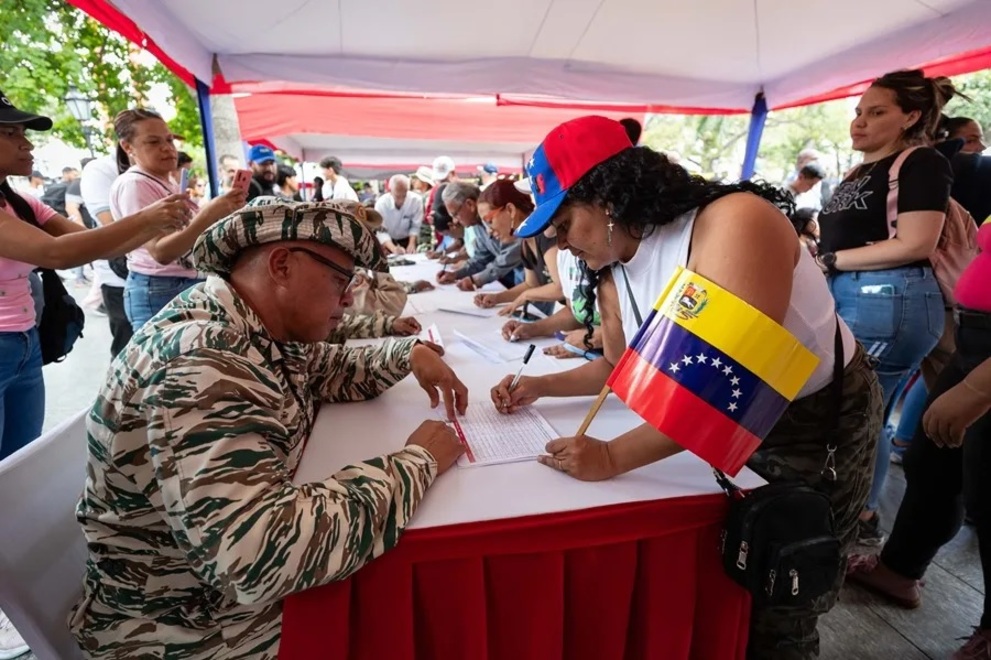
EFE/ Ronald Pena R
The dangers of spectacle politics
What does this pageantry achieve? In the short term, it may consolidate Maduro’s support within Chavista neighborhoods, where slogans like “If you mess with Maduro, you mess with the neighborhood” are painted on walls. It rallies old loyalties around Chávez’s memory, projecting strength even as Venezuela remains diplomatically isolated and economically fragile.
But the strategy is fraught with risk. Turning militias into symbolic shields blurs the line between civilian and combatant, exposing vulnerable populations to potential harm. International law condemns the use of civilians as buffers in military conflict; the optics that Maduro relies upon could quickly morph into evidence against him.
It also risks desensitizing Venezuelans further. When uniforms are distributed to pensioners and rifles handed to housewives, the meaning of defense becomes diluted. For many outside Caracas’ pro-government enclaves, the exercise looks less like patriotism and more like farce.
Yet behind the theater lies a deeper truth: Venezuela is once again caught between a government clinging to power through symbolism and a superpower unwilling to recognize its legitimacy. The militias, with their gray hair and trembling hands, embody both resilience and vulnerability. They are props in a geopolitical standoff, but also citizens whose anxieties are real.
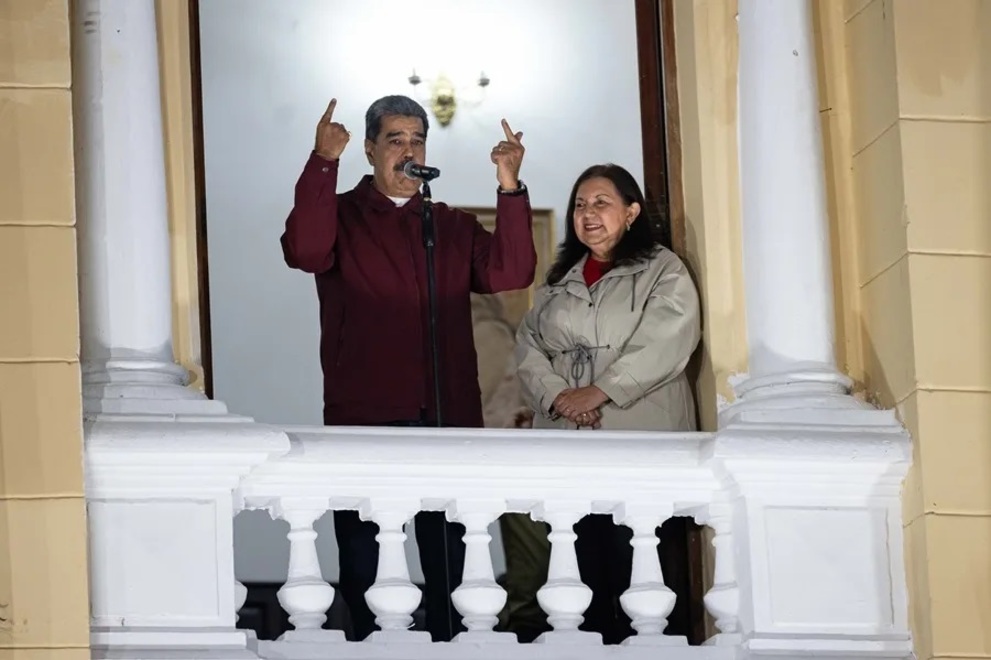
EFE/ Ronald Pena R
Conclusion: a fatherland defended, or a fatherland used?
When Edith Perales buttons his uniform in the 23 de Enero barrio, he feels the weight of history. To him, it is about defending the soil under his feet, the block where he grew up, the dream Chávez once promised. But to political analysts, it is about numbers—8.2 million claimed militia members, a dubious statistic designed to inflate the sense of strength.
The truth lies somewhere in between. These militias may never fire a shot in anger. They may never see a U.S. soldier on Venezuelan soil. But they will continue to be marched into parades, photographed in drills, and invoked in speeches. Their real battle is not against Washington, but against irrelevance.
Also Read: Titicaca’s Cry: How Neglect and Pollution Are Suffocating Bolivia’s Sacred Lake
In that sense, Maduro’s militia is Venezuela itself: weary, improvised, stubbornly alive, and used as both weapon and shield in a fight that feels endless. Whether that fight ends in negotiation or escalation, the image of senior citizens clutching rifles in the Caracas sun will endure as a symbol of a nation where politics has become theater, and survival itself is staged.




